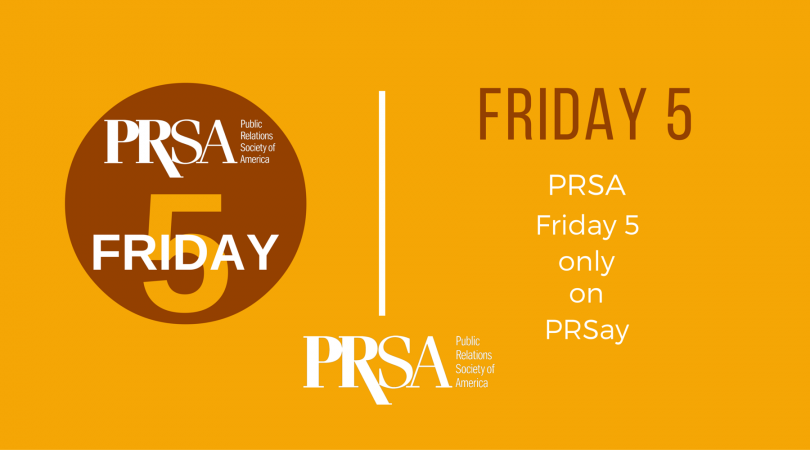Have you been working late hours and dreaming of your upcoming summer getaway? If you’re stuck in dream mode, there’s a good possibility that recent airline news will turn your sweet vacation dreams into nightmares. It seems like there’s a new airplane crash reported every day, and when there isn’t, airlines are making headline news for customer service nightmares.
In this week’s Friday Five – an analysis of the week’s biggest public relations and business news and commentary – we’ll take a look at crisis communication, reputation management and customer communications gaffes by major airlines. We’ll examine Southwest’s response to a passenger’s negative tweets, Spirit’s new approach to Twitter, JetBlue’s response to an intoxicated pilot and the crisis communication response to the most recent Malaysia Airlines disaster. We’ll also discuss the Associated Press’s poorly worded tweet that sent followers into a panic.
Where’s the LUV? Southwest Airlines Kicks Passenger Off Flight for Tweeting (PRNewser)
Have you ever encountered bad customer service and immediately turned to Twitter to vent? In today’s connected, mobile environment, many of us probably have; and that’s exactly what Southwest “A-List” passenger Duff Watson did after a gate agent wouldn’t let his children board a plane with him. Watson, a frequent Southwest flyer, has priority boarding status, while his children apparently don’t.
After Watson tweeted something along the lines of “Wow, rudest agent in Denver. Kimberly S, gate C39, not happy @SouthwestAir” he and his two children were asked to leave the plane. Southwest claims that his tweet threatened the security of the gate agent and they would not let the family re-board without Watson deleting the offending tweet. Watson complied, but later shared the story that became national news.
Learn more about the situation, including Southwest’s response to the family, by visiting the full article.
Spirit Airlines Puts Twitter On Autopilot (Forbes)
The use of autopilot may be a wonder of modern flying technology, but is automation ever OK on social media? Spirit Airlines seems to think so. The company recently updated its Twitter profile to inform followers of a switch to “autopilot.” The profile says, “Big social media team costs money, so we put our feed on Autopilot to save you cents on every ticket.”
Jason Rabinowitz, author of the article, explains the decision: “While most airlines globally are ramping up their social media customer service teams, Spirit has decided to do the exact opposite. However, the ‘autopilot’ approach is actually a step up for Spirit in terms of interaction, as they had previously only used Twitter as a means for outgoing communication without ever replying to specific tweets. “
Read the full article on Forbes.com.
Experts: Airline needs to respond swiftly (Boston Herald)
We often hear stories about the impact overworked and underpaid pilots can have on airplane safety. However, it’s rare to hear a story about a pilot hindering the safety of an aircraft because of a heroin problem. That’s precisely what happened to JetBlue this week, as one of its pilots was arrested for purchasing heroin merely fourteen hours prior to a scheduled flight.
In this rare case, how should the airline respond? In this Boston Herald article, Rob Waldeck suggested, “For JetBlue, whose brand is based on humanity and connection it’s important they acknowledge the serious nature of the situation and respond in their familiar brand voice and not hide behind legalese and corporate speak.”
Read suggestions and analysis from other crisis communications experts via the full article.
Malaysia Airlines’s rebrand rests on the forgiveness of one group (Quartz)
Could a new look for Malaysia Airlines make you forget about the airline’s two major tragedies that have taken place this year? While you might not immediately forget the incidences, there have been several instances in the past few decades that prove that rebranding can helped airlines turn their reputation around after disasters.
The author, Annette Ekin, shares an example from Korean Air Lines:
“The tragedy of flight MH17 brings to mind the 1983 shooting down of Korean Air Lines flight KAL007 by a Soviet fighter jet after the commercial carrier veered into Russian airspace. A year later, the airline was remolded into its current image. Korean Air Lines, or KAL, became known as Korean Air…Even with its new livery, Korean Air, now a top ranked airline for service and safety, had to contend for years with dredging up and restructuring an at times fatal hierarchical organizational structure which contributed to a poor safety record well into the late 1990s.”
More examples can be found in the full article.
Associated Press Bungles Malaysia Airlines Crash Alert, Sends Newsrooms Into Panic (Newsweek)
In a week where we have seen a major plane crash, flight restrictions over war zones and a passenger plane allegedly shot down, people across the globe are understandably on edge. That’s why when the Associated Press issued what should have been an informative tweet, followers immediately began to panic. In retrospect, putting the words “crash lands” together without proper punctuation was a major error.
BREAKING: Dutch military plane carrying bodies from Malaysia Airlines Flight 17 crash lands in Eindhoven.
— The Associated Press (@AP) July 23, 2014
Newsweek author Lucy Westcott explained what happened in the aftermath of the tweet, “The AP issued a clarification shortly after the mistake, but that didn’t stop eagle-eyed journalists from panic this morning. It also led a few to wonder whether a plane safely landing is grounds for breaking news in the first place.”
See how Westcott would have worded the tweet and read more about the AP’s response on Newsweek.com.







